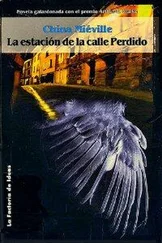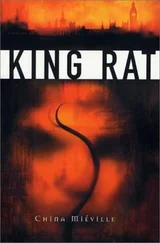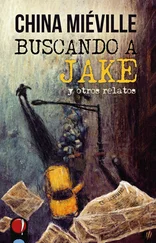China Miéville
Un Lun Dun
With huge thanks to Talya Baker, Mark Bould, Lauren Buckland, Mic Cheetham, Deanna Hoak, Simon Kavanagh, Peter Lavery, Claudia Lightfoot, Tim Mak, Farah Mendlesohn, Jemima Miéville, David Moench, Jonathan Riddell of London’s Transport Museum, Max Schaefer, Chris Schluep, Jesse Soodalter, Harriet Wilson, Paul Witcover, and everyone at Del Rey and Macmillan.
As always, I’m indebted to too many writers to list, but particularly important to this book are Joan Aiken, Clive Barker, Lewis Carroll, Michael de Larrabeiti, Tanith Lee, Walter Moers, and Beatrix Potter. Particular thanks are due Neil Gaiman, for generous encouragement and for his indispensable contributions to London phantasmagoria, especially Neverwhere.
People speaking British English and people speaking American English mostly understand each other fine. But there are a few words we use in Britain that you might not recognize, or that we use differently from you. Should you encounter a strange or difficult word in the story, please flip to the short glossary, which is located in the back of this book.
In an unremarkable room, in a nondescript building, a man sat working on very non-nondescript theories.
The man was surrounded by bright chemicals in bottles and flasks, charts and gauges, and piles of books like battlements around him. He propped them open on each other. He cross-referred them, seeming to read several at the same time; he pondered, made notes, crossed the notes out, went hunting for facts of history, chemistry, and geography.
He was quiet but for the scuttling of his pen and his occasional murmurs of revelation. He was obviously working on something very difficult. From his mutters and the exclamation marks he scrawled, though, he was slowly making progress.
The man had traveled a very long way to do the work he was doing. He was so engrossed it took him a long time to notice that the light around him was fading, unnaturally fast.
Some sort of darkness was closing in on the windows. Some sort of silence— more than the absence of noise, the presence of a predatory quiet— was settling around him.
The man looked up at last. Slowly, he put down his pen and turned around in his chair.
“Hello?” he said. “Professor? Is that you? Is the minister here…?”
There was no answer. The light from the corridor still faded. Through the smoked glass of the door, the man could see darkness taking shape. He stood, slowly. He sniffed, and his eyes widened.
Fingers of smoke were wafting under the door, entering the room. They uncoiled from the crack like feelers.
“So…” the man whispered. “So, it’s you.”
There was no answer, but beyond the door came a very faint rumble that might just have been laughter.
The man swallowed, and stepped back. But he set his face. He watched as the smoke came more thickly around the edges of the door, eddying towards him. He reached for his notes. He moved quickly, dragging a chair as quietly as he could into place below a high ventilation duct. He looked afraid but determined— or determined but afraid.
The smoke kept coming. Before he had a chance to climb, there was another rumble-laugh-noise. The man faced the door.
There was no doubt about it: there was a fox behind the climbing frame [5] [5] Climbing frame: A jungle gym.
. And it was watching.
“It is, isn’t it?”
The playground was full of children, their gray uniforms flapping as they ran and kicked balls into makeshift goals. Amid the shouting and the games, a few girls were watching the fox.
“It definitely is. It’s just watching us,” a tall blond girl said. She could see the animal clearly behind a fringe of grass and thistle. “Why isn’t it moving?” She walked slowly towards it.
* * *
At first the friends had thought the animal was a dog, and had started ambling towards it while they chatted. But halfway across the tarmac [24] [24] Tarmac: What they make airport runways out of, but we use it to describe normal roads, too.
they had realized it was a fox.
It was a cold cloudless autumn morning and the sun was bright. None of them could quite [16] [16] Quite: When Americans say something is “quite good/bad/etc.,” you mean it is “very” good/bad/etc. When Brits say it, we sometimes mean it in just the same way— but then sometimes we mean something is only “fairly,” or “moderately,” or “kind-of-but-not-extremely” good/bad/etc. It can be confusing.
believe what they were seeing. The fox kept standing still as they approached.
“I saw one once before,” whispered Kath, shifting her bag from shoulder to shoulder. “I was with my dad by the canal. He told me there’s loads in London now, but you don’t normally see them.”
“It should be running,” said Keisha, anxiously. “I’m staying here. That’s got teeth.”
“All the better to eat you with,” said Deeba.
“That was a wolf,” said Kath.
Kath and Keisha held back: Zanna, the blond girl, slowly approached the fox, with Deeba, as usual, by her side. They got closer, expecting it to arch into one of those beautiful curves of animal panic, and duck under the fence. It kept not doing so.
The girls had never seen any animal so still. It wasn’t that it wasn’t moving: it was furiously not-moving. By the time they got close to the climbing frame they were creeping exaggeratedly, like cartoon hunters.
The fox eyed Zanna’s outstretched hand politely. Deeba frowned.
“Yeah, it is watching,” Deeba said. “But not us. It’s watching you. ”
* * *
Zanna— she hated her name Susanna, and she hated “Sue” even more— had moved to the estate [8] [8] Estate: Several big apartment blocks— a housing project.
about a year ago, and quickly made friends with Kath and Keisha and Becks and others. Especially Deeba. On her way to Kilburn Comprehensive [6] [6] Comprehensive: A school for children aged 11 to 16 or 18.
, on her first day, Deeba had made Zanna laugh, which not many people could do. Since then, where Zanna was, Deeba tended to be, too. There was something about Zanna that drew attention. She was decent-to-good at things like sports, schoolwork, dancing, whatever, but that wasn’t it: she did well enough to do well, but never enough to stand out. She was tall and striking, but she never played that up either: if anything, she seemed to try to stay in the background. But she never quite could. If she hadn’t been easy to get on with, that could have caused her trouble.
Sometimes even her mates were a little bit wary of Zanna, as if they weren’t quite sure how to deal with her. Even Deeba herself had to admit that Zanna could be a bit dreamy. Sometimes she would sort of zone out, staring skywards or losing the thread of what she was saying.
Just at that moment, however, she was concentrating hard on what Deeba had just said.
* * *
Zanna put her hands on her hips, and even her sudden movement didn’t make the fox jump.
“It’s true,” said Deeba. “It hasn’t taken its eyes off you.”
Zanna met the fox’s gentle vulpine gaze. All the girls watching, and the animal, seemed to get lost in something.
…Until their attention was interrupted by the bell for the end of break. The girls looked at each other, blinking.
Читать дальше












